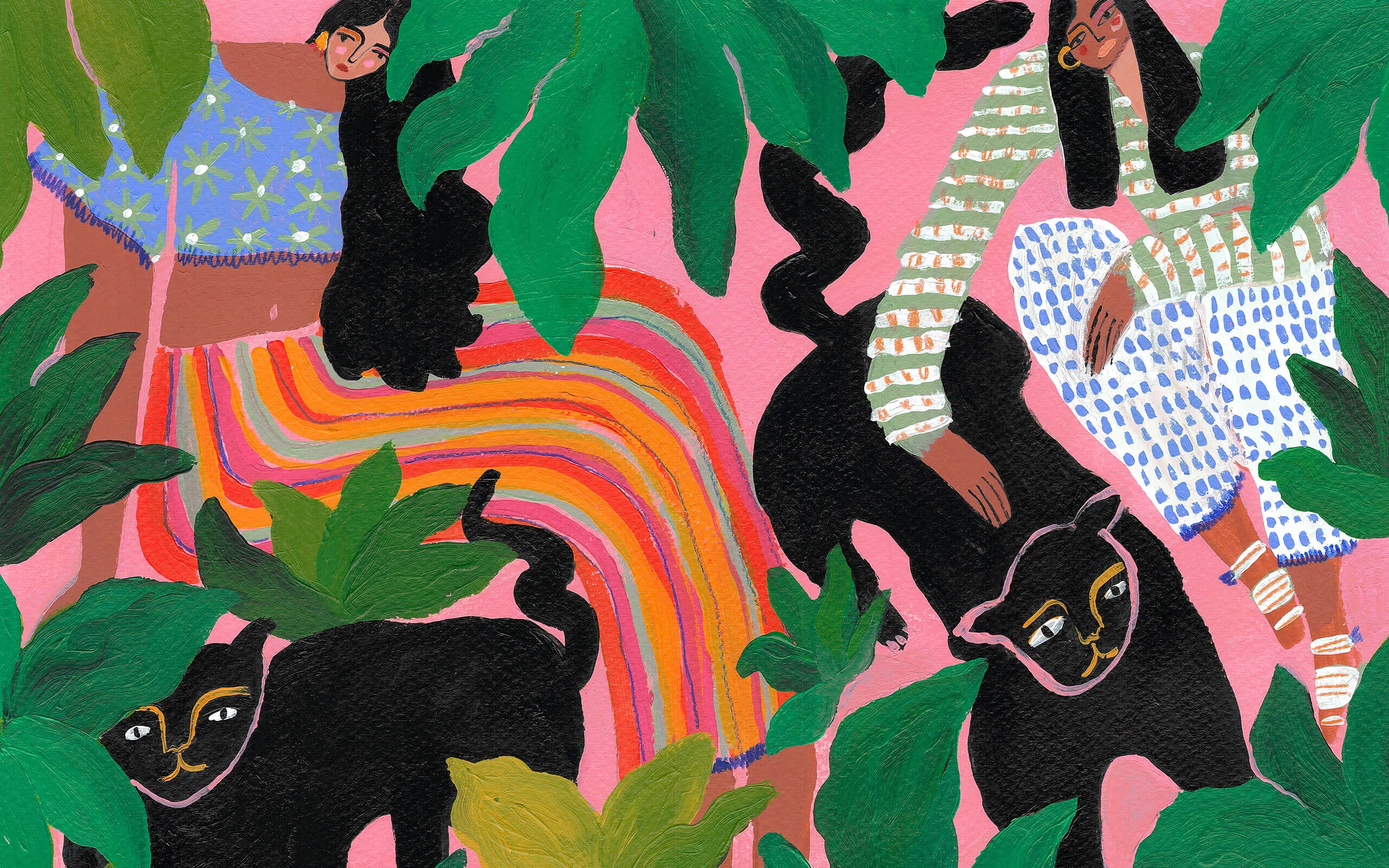
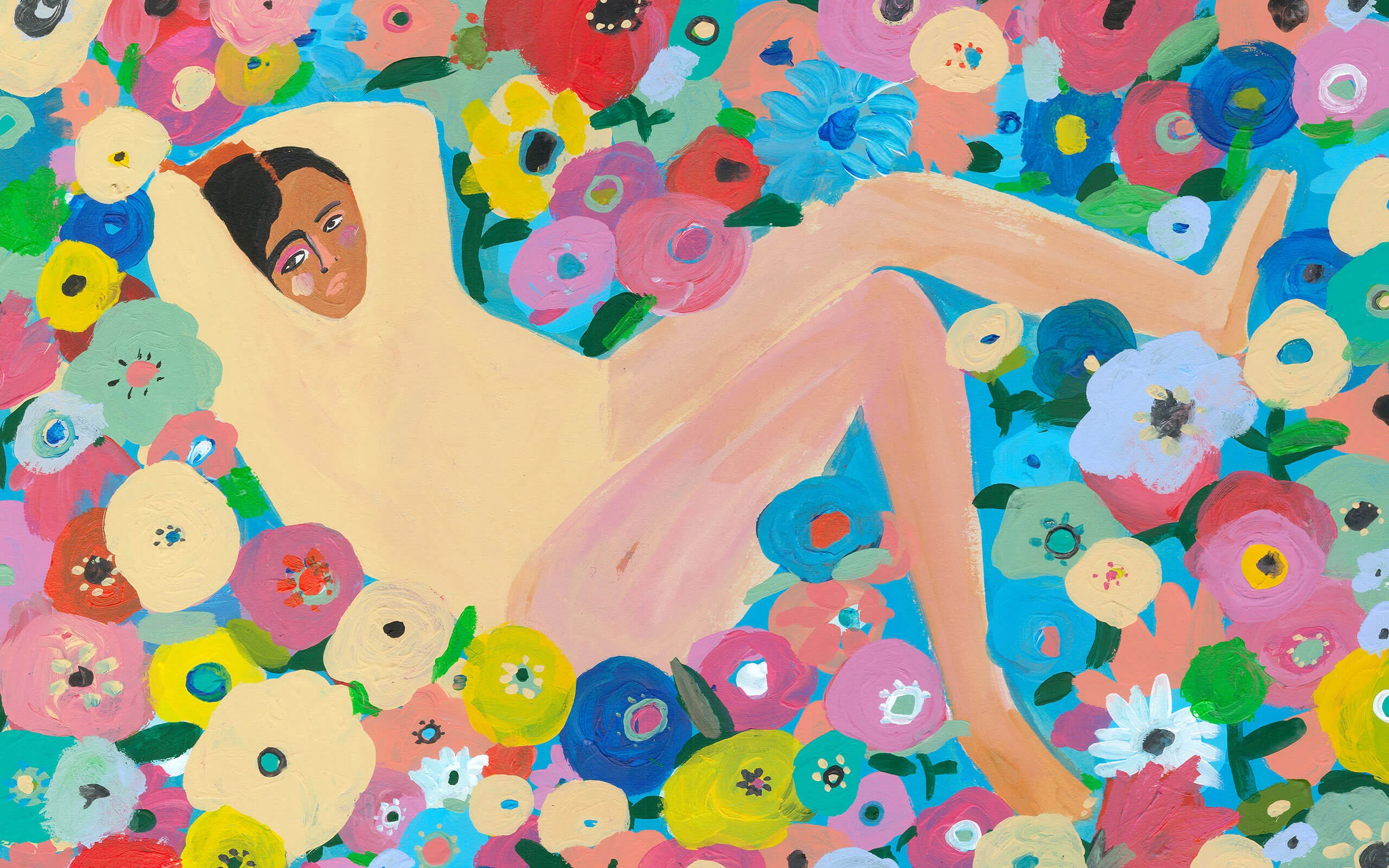
During an art class some years ago Mexican artist Ana Leovy first learnt about blind contour drawing. It’s when you draw while keeping your eyes fixed on your subject, without looking down at the paper to see what you’re doing.
“I fell in love with the technique right away,” Ana says. “I find it very interesting to interpret what you see and get results that look so far from reality when put onto paper.” Ana’s illustrations are directly influenced by the radical approach of this method, the unrealistic shifts in perspective and a disregard for the rules.
Perfection is not necessarily beautiful; to me different is more exciting.
Ana is not interested in replicating reality, instead she draws her women out of proportion with magnified legs or elongated arms. Their asymmetrical faces are tiny compared to their monolithic shoulders.
“Perfection is not necessarily beautiful; to me different is more exciting,” Ana says. “We already have perfection in photography. For me art is about painting what you imagine, it doesn’t necessarily have to make any sense perspective-wise.”


Not only does Ana warp perspective, she also exaggerates color. Her women glow in a spectrum of skin tones ranging from red, pink and yellow to brown and black. At times she paints different parts of the same body in clashing colors – one woman sports green legs while her cheek flashes hot pink.
It’s an approach borrowed from art history - Matisse’s Woman with a Hat comes to mind - but it’s Ana’s intention that keeps it relevant today. “I want everyone to be able to relate to my work regardless of their skin color or body shape,” she says. “I want to celebrate diversity and maybe help people embrace their uniqueness through my work.”
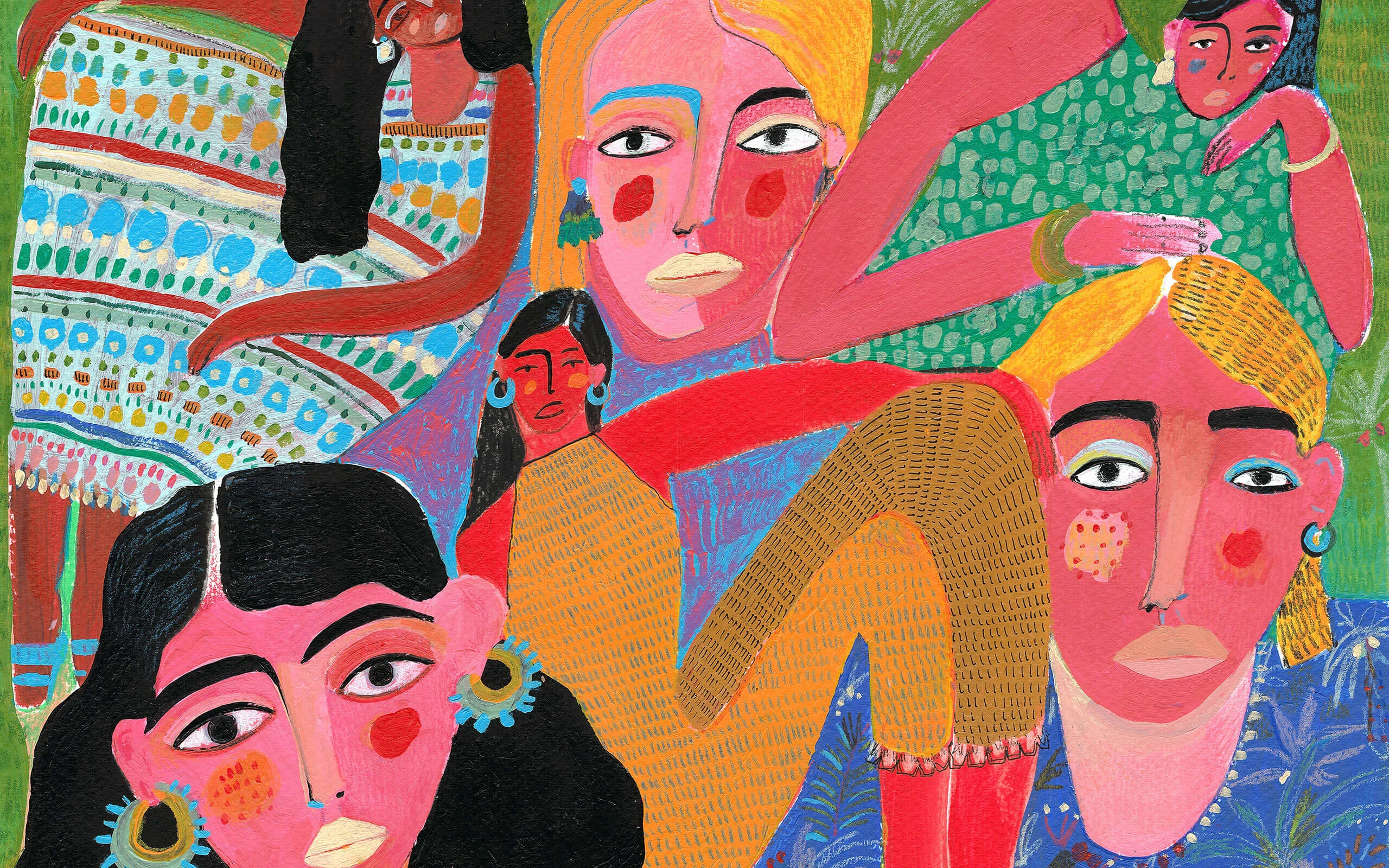
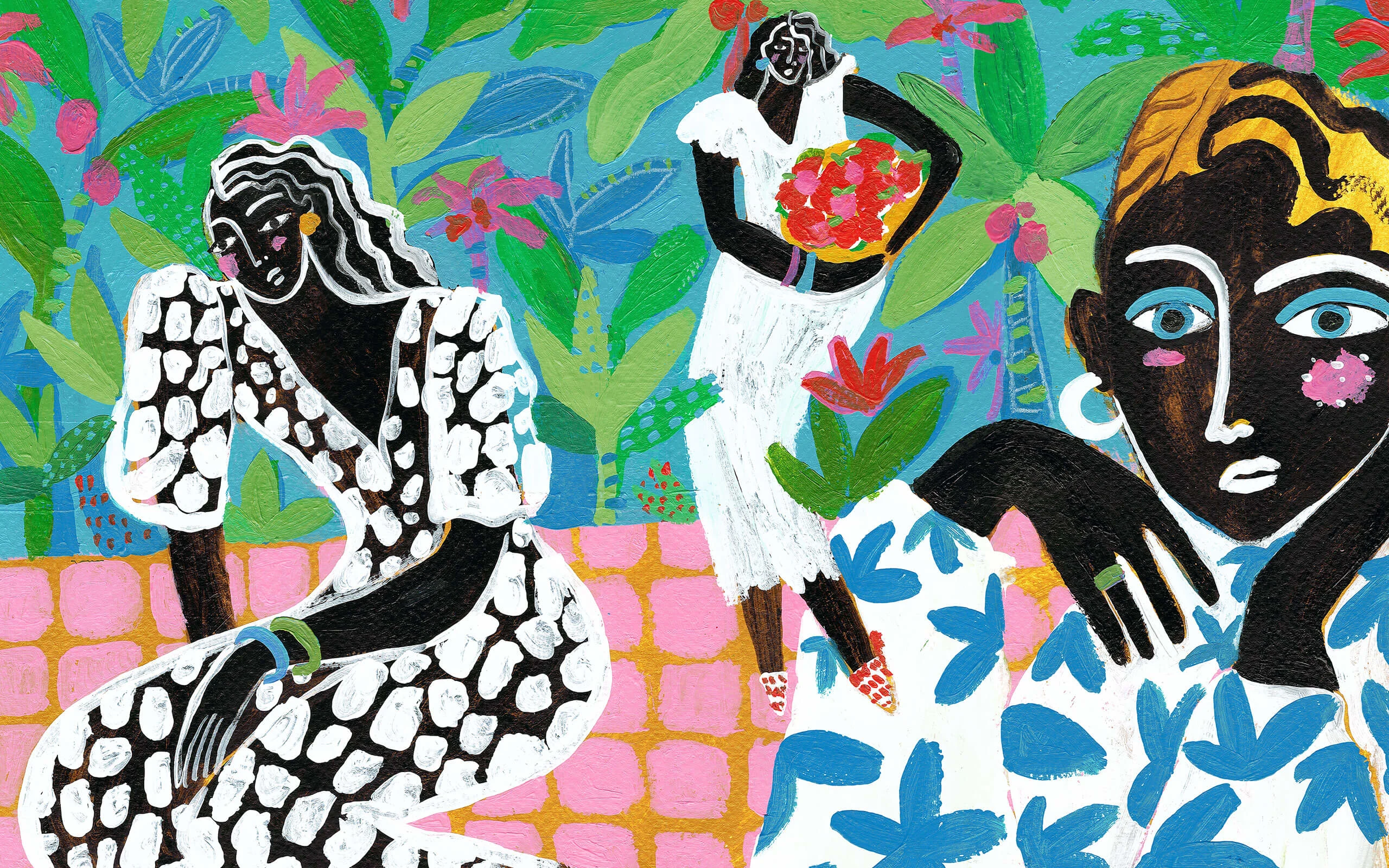
There’s a unshakable theme of sisterhood in Ana’s paintings; women being affectionate with each other, having a glass of wine together, providing a shoulder to lean on. Although they are fictional characters, portraying female camaraderie is important for Ana because it mirrors her own life.
“All my life women around me have been nothing but inspiration. I love being able to confide in them.” She’s surrounded herself with a community of female artists who support each other in what can be a lonely and competitive career.
“Every time I look back on any important stage of my life a certain woman comes to mind, either a friend, a teacher, a family member. It’s as if they were all thrown into my life right at the perfect moment only to make it better.”
We cannot progress as a community if we don’t love and value ourselves as individuals first.
Fortunately she’s not the only illustrator depicting female figures. There’s an army of female illustrators hailing from every continent using their pencils to draw body-positive, racially-diverse women. A global movement that signals the end of the traditional and rigid fashion illustration silhouette.
Ana adds to this visual chorus by going beyond the skinny or curvy body shapes often depicted. Instead, the women in her paintings extend heavy, over-sized forearms or mismatched calves. Avoiding perpetuating any one type of beauty, she subtly disrupts the female form stretching out the concept of diversity like a canvas.
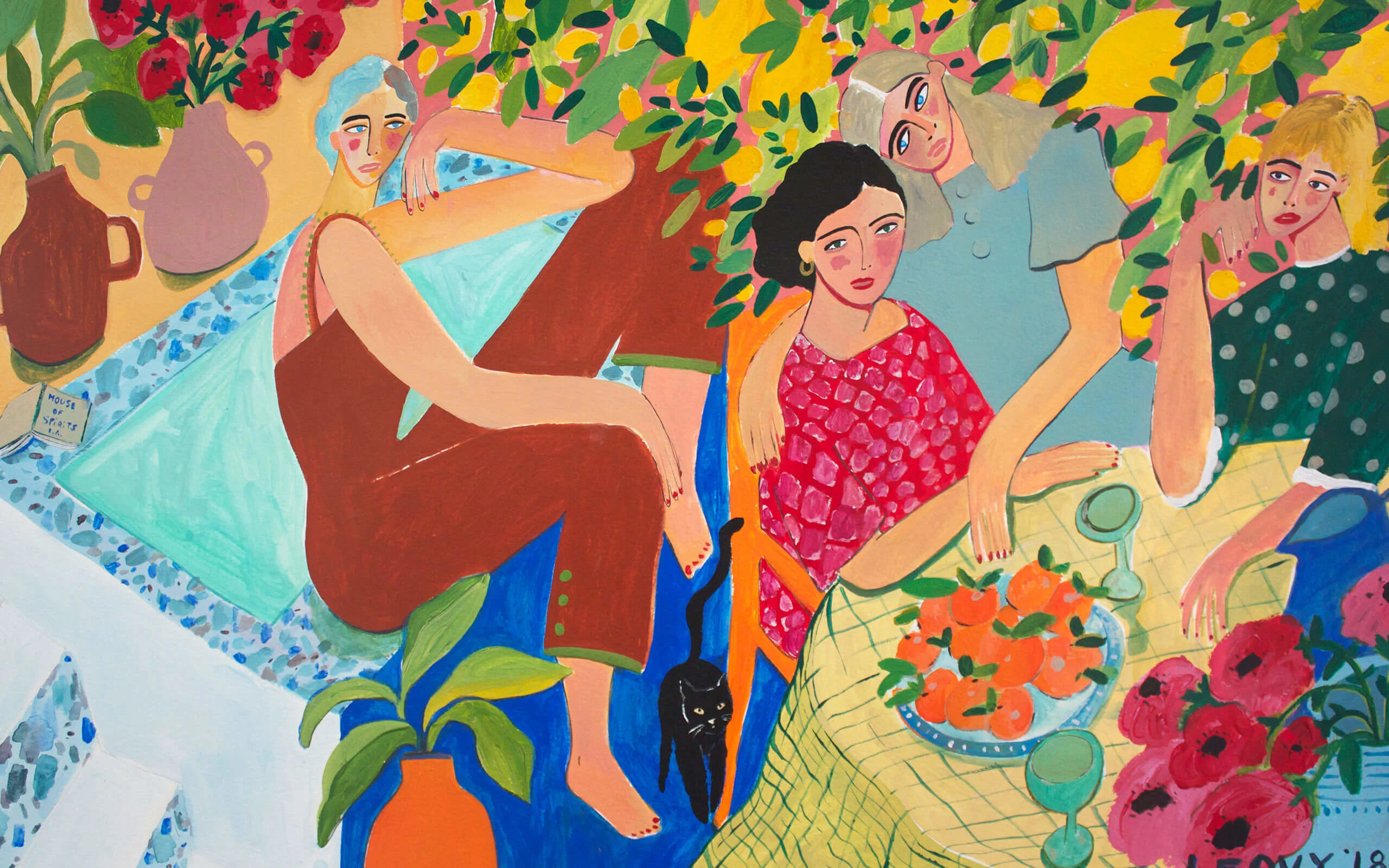
She paints women for their ability to personify both vulnerability and strength. “I love playing with these two adjectives and trying to find the balance between them,” she says. She uses large eyes to best express this duality. “People say so much with their eyes; I like giving my characters intense looks, making them look powerful and daring, but vulnerable at the same time.”
UN Women reports that in 2016, at least seven women were victims of gender-related killings every day in Mexico. “Sadly we are still a very chauvinist community where you get blamed for being out too late or the way you dress,” Ana says.

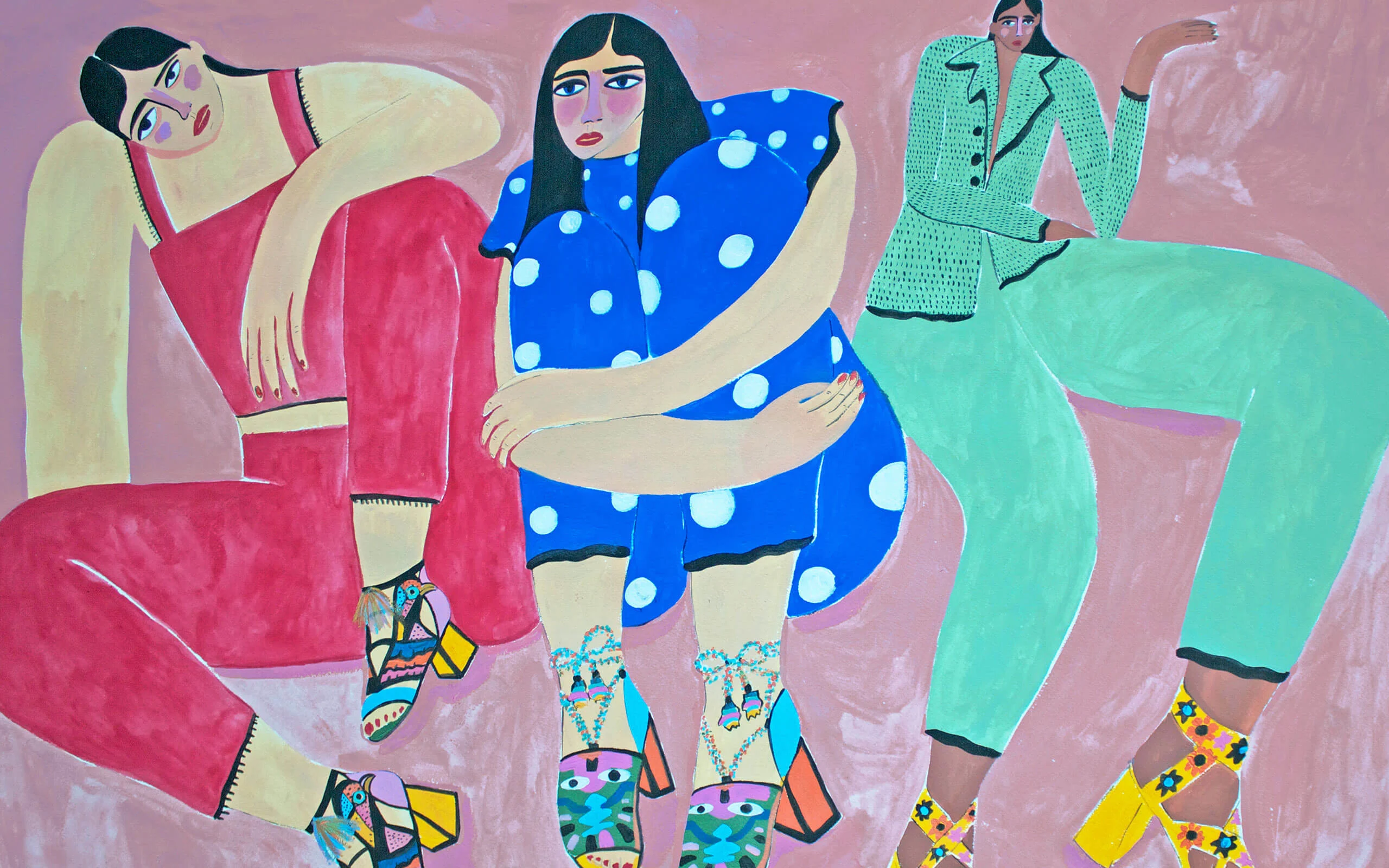
“This is a country where most women are raised to be married and have children, nothing else. Even though this has been a year of very feminist-oriented social media, I believe we’re still lacking the day-to-day actions that go in hand with these movements, to really practice what we preach.”
Ana’s core message is self-love and empowerment. “We cannot progress as a community if we don’t love and value ourselves as individuals first,” she says. “Nowadays we live in a very superficial and narcissistic world, I think we tend to judge ourselves more and feel undeserving of our accomplishments because we are always comparing ourselves with one another.
“I know it’s not an easy task and it takes a lot of work but, personally, since I started appreciating and loving myself more I began to see changes in every aspect of my life. We are all still works in progress.”
Words by Alix-Rose Cowie.

